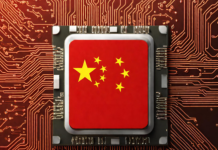In the face of ongoing restrictions imposed by the United States and its allies on China’s access to advanced chips and technologies, the country has experienced a notable slump in its imports of integrated circuits (ICs). Newly released customs data reveals that China’s IC imports dropped by 18.5 percent in the first six months of 2023 compared to the same period the previous year, further exacerbating concerns about the nation’s semiconductor supply chain.
According to data published by the General Administration of Customs on Thursday, China’s imports of integrated circuits declined to 227.7 billion units during the first half of 2023, a significant decrease from the 279.6 billion units recorded in the corresponding period in the previous year. While this represents a slight improvement over the 19.6 percent drop observed in the first five months of 2023, it still highlights the challenges faced by China in meeting its demand for essential electronic components.

The customs data also revealed a considerable decline in the total value of chip imports, which fell by 22.4 percent to reach USD 162.6 billion during the first half of the year. This decline in value far exceeded the marginal 0.1 percent contraction in China’s overall imports for the same period, indicating the severity of the impact on the integrated circuit sector.
The sharp decline in China’s IC imports underscores the difficulties the country faces in securing the necessary components to support its rapidly growing technology industry. The ongoing restrictions imposed by the US and its allies have limited China’s access to advanced chips, which are critical for the development of cutting-edge technologies such as artificial intelligence, 5G telecommunications, and high-performance computing.
The data further emphasizes the urgent need for China to enhance its domestic semiconductor capabilities and reduce its reliance on foreign sources. The Chinese government has been taking proactive measures to strengthen its homegrown semiconductor industry through increased investment in research and development, as well as the establishment of semiconductor manufacturing facilities.
However, achieving self-sufficiency in chip production will take time, and until then, China may face continued challenges in meeting the demands of its technology sector. The decline in imports of integrated circuits serves as a stark reminder of the importance of a resilient and secure semiconductor supply chain for China’s economic development and technological advancement.
As the global landscape for semiconductor trade continues to evolve, it remains to be seen how China will navigate the complex web of restrictions and develop a sustainable strategy to address its chip supply concerns.
Related:
Foxconn pulls out from joint venture with Vedanta in India for a semiconductor factory
Lenovo Xiaoxin Pro 2023 Ryzen Edition to launch in China on July 29
Taiwan’s Powerchip Semiconductor and SBI Holdings forge partnership to build chip foundry in Japan
(via)







